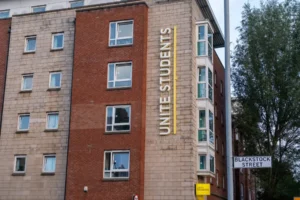4. Will this cause central banks reverse their hawkish course?
“As generalised lockdowns in developed countries appear to be behind us (?), it makes sense that central banks are tapering down asset purchases. It also makes sense that this move is irrespective of inflation. Twelve years’ experience with quantitative easing suggest that its impact on the real economy, and thus inflation, in times outside of a financial crisis is only marginal. This is why central bankers maintain large balance sheets and leave an unprecedented amount of money in circulation, even at a time when inflation is spiking.
“Nevertheless, as inflation picks up, central banks have embraced a more hawkish rate rhetoric, despite the fact that supply-side inflation can’t conventionally be fought with interest rates. In part, this is to reassure the public and their governments that they still have the tools to fight inflation, their core mandate. It is also an attempt to control inflation expectations and prevent upward wage pressures, exacerbated by the pandemic and its impact on available workforce, from turning into a vicious cycle.
“Having said that, keeping up the appearance that supply side inflation is something that can go away with interest rates might have to be subordinated to the very real need of keeping the recovery alive, especially if measures that severely constrict economic activity return. At the very least we would be surprised if in the next few days, central bankers make hawkish statements, about tapering or rate rises. If the Omicron variant proves to be a significant setback markets will likely expect central banks to turn dovish again, and would, in all probability be surprised if that scenario failed to materialise.
5. What does this all mean for the UK?
“In recent weeks, the UK government and central bank have run ahead of the global trend, tightening fiscal and monetary conditions for consumers about a year ahead of their global peers. At the time of the budget, which coincided with more hawkish statements from the central bank, we said that the “government might have to rethink raising taxes if global conditions change”. A possible material setback in the pandemic qualifies as a change in conditions. If it is forced to materially step-up stringency measures, to the point where these would hurt economic activity, it is possible that the chancellor might re-think or defer the announced tax rises.
“While fiscal aid to the NHS and education, as well as focus on infrastructure projects, might still go through as planned, it is possible that the government might opt to obtain the funds at very low rates from financial markets, upping the debt, rather than further risking consumer sentiment.”














